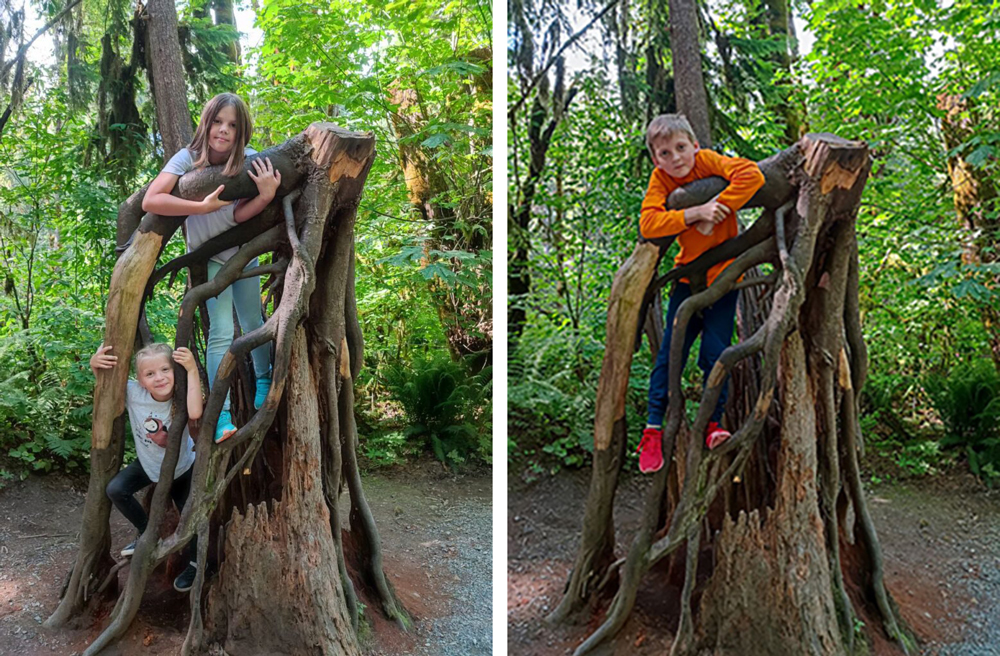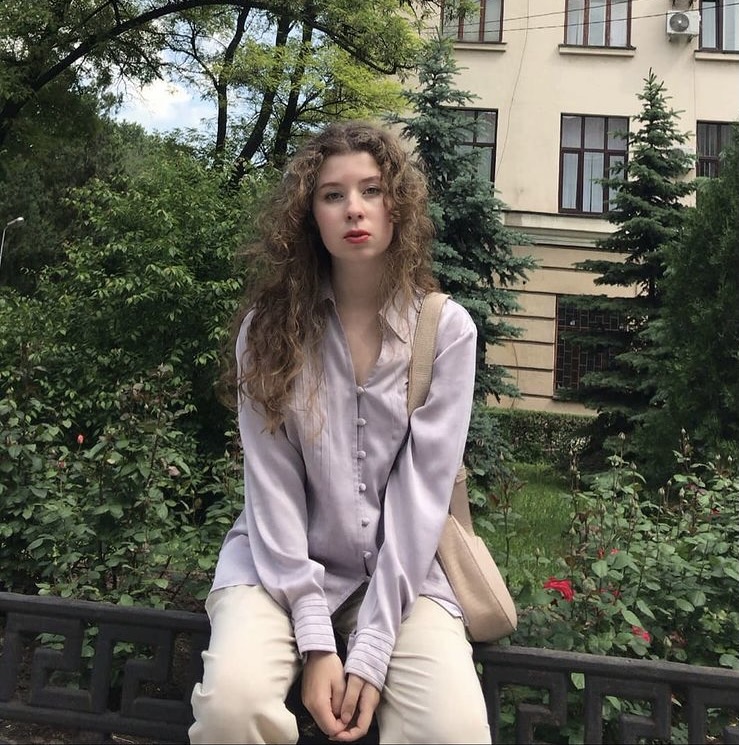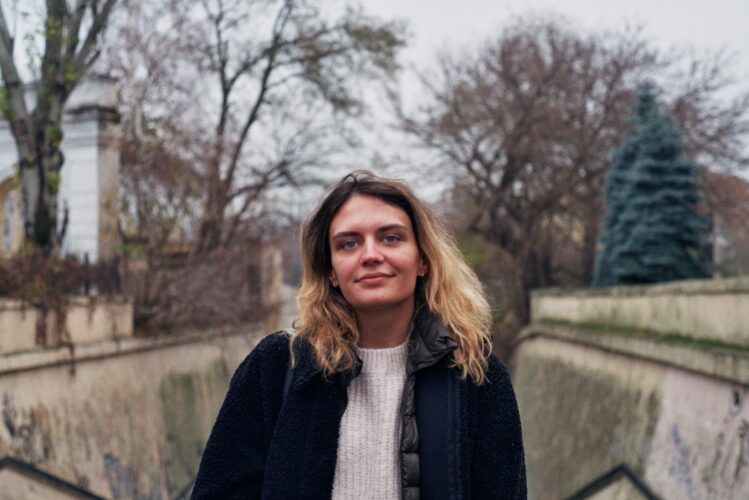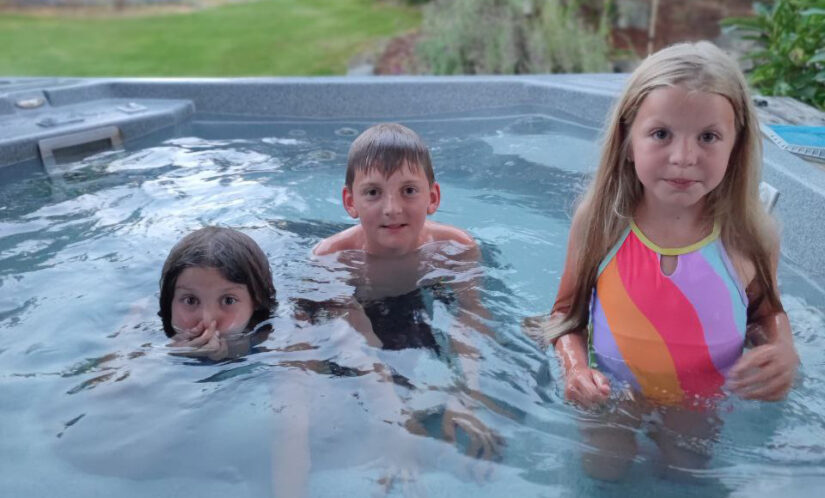Back to School for Ukrainian Refugees, Expats Means Fresh Start with Old Fears
Children relish returning to class while parents fret about the future — and worry for the safety of family and friends left behind
By Jo Napolitano | September 6, 2022Virsaviia Puzhalina, age 7, who came to the United States in April as a refugee from Ukraine, knew exactly what she wanted to wear on her first day of school: A T-shirt adorned with the words “Peace and Love” along with matching red, white and blue leggings — a tribute to her newly adopted country.
The second grader, who lives with her mother, father and two older siblings in Tacoma, Washington, was excited to return to class, though she was worried about having a new teacher.
“Back home,” in Ukraine, her mother, Anastasiia explained, “elementary students have the same teacher from first through fourth grade.”
But Virsaviia’s fears melted after just a few hours.
“I like my new teacher,” said the little girl, sitting in the family car as her father drove her and her sister to Elmhurst Elementary on the second day of school last week. “I liked my class and my new friends.”
Virsaviia’s brother, Illia, 11, felt the same: The sixth grader, who moved up to middle school this year, was thrilled to have Ukrainian- and Russian-speaking students in his English language classes. And middle sister Yeva, 9, was elated to have the same 5th-grade teacher this year as her big brother did for the few months the siblings were in school last year. Not only did Illia speak highly of her, Yeva got to meet her during a spring parent-teacher conference.
“She was excited to see her (again),” her mother said.

But underneath the joy that accompanies the start of the new school year is a painful uncertainty about the future. Virsaviia’s parents worry daily about their immigration status, their ability to work and about the family they left behind.
They and others with strong ties to Ukraine wonder when and how the invasion, now in its seventh month, will end.
The 74 has been keeping pace with expats since last winter and with Virsaviia’s family since meeting them at a refugee camp in Tijuana, Mexico in April: They were among more than 7 million people who fled the country since the invasion began Feb. 24.
Another 7 million Ukrainians are internally displaced and 13 million are living in areas prone to conflict, unable to leave because of security risks, battered infrastructure and a lack of money and information about how and where to head for safety, according to the United Nations.
More than 5,400 civilians had been killed by early August and more than 7,400 others have been injured, the UN reported.
The Zaporizhzhia power plant, located inside a city that has become a focal point for the fighting, is currently being monitored by international nuclear inspectors while Ukraine’s armed forces, bolstered by volunteers, struggle to take back land held by the Russian military.

Marta Hulievska, a rising sophomore at Dartmouth College in Hanover, New Hampshire, has been worried about the power plant ever since war began: It’s located in her hometown.
The history major is anxious about her parents’ recent decision to reunite there after months spent apart. Married for 21 years, they were eager to live together again.
“Sirens go off every hour,” she told The 74 earlier this summer. “My dad ignores them: If you would go to the bomb shelter every time the alarms go off, you would not be able to function.”
Hulievska, who spent her summer in New York City working as an intern at Freedom House, a human-rights focused organization founded by Eleanor Roosevelt and Wendell Willkie, worries whether her father, a 57-year-old attorney, will be called up to war.
“So far, he has not gotten any documentation about it,” his daughter said, speaking of the draft. “But it happens kind of randomly. It’s always in the back of our minds.”
And her parents’ financial situation is dire. The Ukrainian economy could shrink by up to 40% by the end of the year. Hulievska has been sending them money for several months.
She isn’t sure when she will see them again, though she does plan to participate in a three-week study abroad program in Berlin in December. Hulievska hopes her mother and sisters, who are free to travel outside Ukraine, will join her. If they make the trip, it will be their first visit since she left for college.
Wartime restrictions mean her father will not attend. Men in his age group are prohibited from leaving the country. And no one knows when — or how — the invasion will conclude.
Her parents remain divided on the topic.
“My mom feels it will end soon, which helps her to not panic,” Hulievska said. “But my dad is pessimistic. Whenever I talk to him about coming back to Ukraine, he thinks I might not be able (to).”

Yana Lysenko, a graduate student at New York University, wasn’t willing to wait any longer. Her boyfriend lives in Odesa, which is partly why she headed back to the country in late August. She was so worried about alerting her parents to her plan that she told them only after she bought her plane ticket. It took two days to enter the beleaguered country.
“It was an exhausting trip,” she said in an Aug. 26 email from Ukraine. “I flew to Warsaw and then Moldova Saturday-Sunday, rested in Moldova overnight and then crossed the border via bus to Odesa on Monday night. Things are much calmer here currently than I expected. I’ve heard a few sirens over the past few days, but no attacks from what I know on the city itself.”
Lysenko, working toward a Ph.D. in comparative literature and Slavic studies, longs to volunteer.
“I’ve done a bit of inquiring and there are a lot of different opportunities, although I’m really leaning toward those that help prepare meals for people in need within the city, as well as those that help the elderly,” she wrote. “People are really struggling. Prices are very high for food and basic necessities right now, so I’d like to help the most vulnerable groups in that way.”
But vulnerability isn’t confined to those who remain in-country. Anastasiia Puzhalina and her family, who’ve been living in Tacoma for the past four months, have relied on the goodness of strangers as they navigate life in the United States.
They currently live rent-free with an elderly man whom they met through their church. A recent widower who lost his wife to COVID, he enjoys their company.
“He is an amazing man,” Puzhalina said. “His grandkids are almost the same age as our children, so this is such a great blessing for our family.”
He pledged to help them until they can live on their own but it’s a difficult position: Puzhalina’s husband worked for years at the Chernobyl Nuclear Power Plant and she sold clothing online. They’ve always supported themselves.
They’ve applied for Temporary Protected Status and employment authorization but neither has come through yet. Right now, they’re surviving on Temporary Assistance for Needy Families, or TANIF.
The uncertainty makes it difficult to plan for the future: Puzhalina has no idea where they might be in a year.
“It depends on what status we will have,” she told The74. “I am praying for the end of war, but I can’t see the end yet. If the war does end, I think our Temporary Protected Status won’t be extended and we will have to leave. I don’t think we have any path to legalization. I think we will use this time as much as possible to help our family in Ukraine.”
Puzhalina’s parents still live in Chernihiv. Her father is not allowed to flee and her mother wouldn’t go without him.
Their daughter’s concern extends well beyond their physical safety.
“It’s not just about the danger of being hit by a missile, but about inflation, the lack of work, the price for groceries, of fuel, for everything,” she said. “It is a really bad situation in Ukraine.”
Despite these fears, the family’s stay in America has been marked by many bright spots — particularly for the children, who spent the summer swimming in a backyard pool, visiting a local rock-climbing center and camping.

Illia, who months earlier in Tijuana expressed worry about making new friends in America, has since forged a strong bond with a boy at school. The relationship has greatly improved his ability to speak English.
And the children aren’t the only students in the family. Their mother has spent the past few months learning to drive.
She’s already passed her written exam and will soon sign up for the road test.
“It’s very challenging,” she said, “I never had to do it in Ukraine: We lived in a 100% walkable place. The big test, I’ll take it when I will feel more confident. I had never been behind the wheel before.”
Get stories like these delivered straight to your inbox. Sign up for The 74 Newsletter

